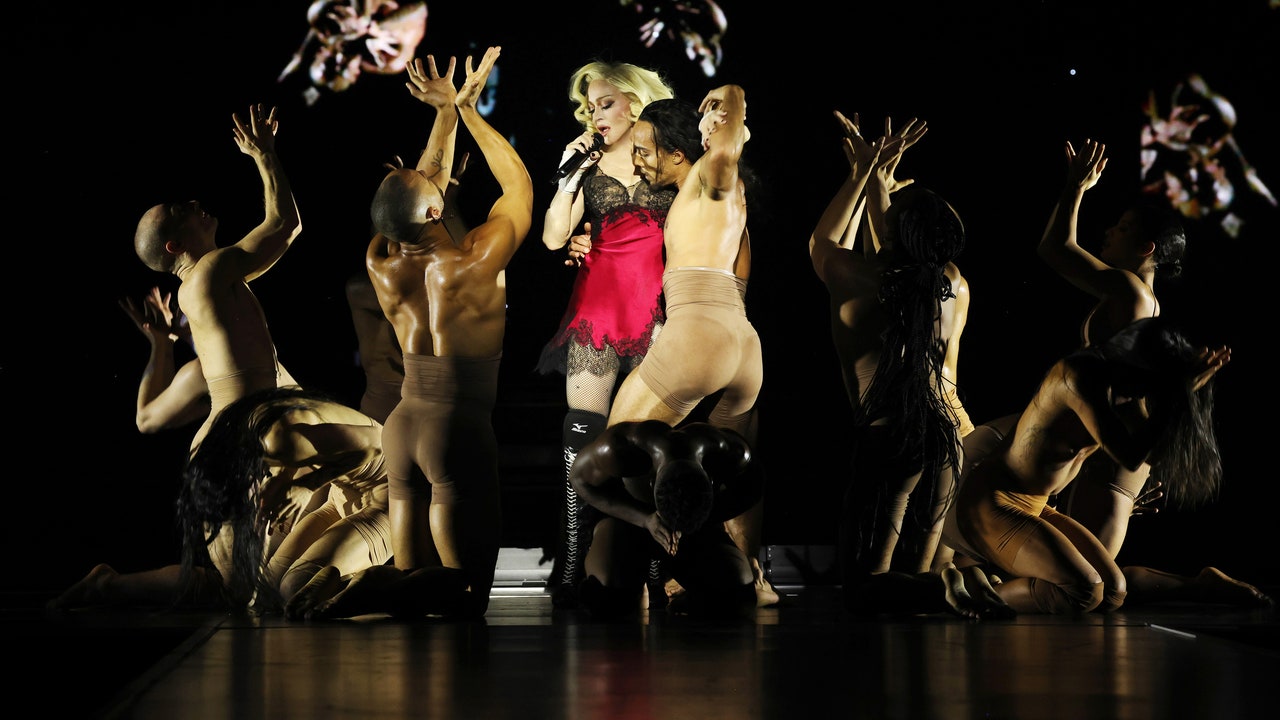
Rather than just being lucky, we could say that they’re all artists with whom you share similar artistic vision?
Yes, perhaps. They’re all well-rounded artists. The work we did with Christine and the Queens, for example, was extremely open. He wanted a contemporary musical to punctuate the whole album, with very abstract settings.
Now that the tour is underway, are you still involved as choreographers?
The show is really meticulous. A few key people make sure that the choreography is respected. Nicolas Huchard, for example, is the captain. He’s in touch with things that can be altered or changed. Ricardo Gomes is the creative director, who takes a lot of footage for Madonna and watches the concert every night to see if camera angles have been altered. The goal is also to allow space for evolution and improvement. And finally, Valeree Young knows all the choreography by heart. She’s in a position to come forward if things have been altered.
What other projects is (LA)HORDE currently working on?
We’re still heading up the Ballet National de Marseille, which is our full-time job. Our show, The Age of Content, continues to tour. We’ll be in Créteil in January and it’s already sold out.
During the concert, Madonna declared, “I don’t like the word pop, because it’s disposable, and I’m not.” Has your definition of pop evolved since the early days of (LA)HORDE?
For us, there are different zones of expression, spaces where you can say certain things and other spaces where you can say other things. What’s beautiful for us today is to be able to move from one space to another, with total freedom. There are lighter spaces where you can introduce elements of severity, for example, the doppelgänger during “American Life.” There are still ways to be totally revolutionary in these situations. Pop shouldn’t be underestimated as it can be subversive. Madonna has managed to remain consistently subversive while building a massive career, which isn’t the case for everyone. Take Janet Jackson‘s “nipplegate” at the Super Bowl Halftime in 2004. It had a huge negative impact on her career. In the pop world, there are spaces for transgression, where you can play with fire and with the ways in which images are received.
Touching on this subject, Madonna adds, “My greatest act of resistance is to continue.”
She’s right, she’s anything but temporary. She’s not just a product, she’s an artist. That’s where she thrives, without ever developing a snobbish reputation. She also knows that she draws her strength from being vulgar, accessible, and embraced by as many people as possible. Pop is a terribly paradoxical universe. Highly inclusive on the one hand, yet sometimes reduced to a consumerist dimension on the other. Navigating these troubled waters as an artist can be very interesting. On the other hand, we’re aware that as artists, that’s not all we can do. We need to return to our own creative spaces, to our own bodies.
